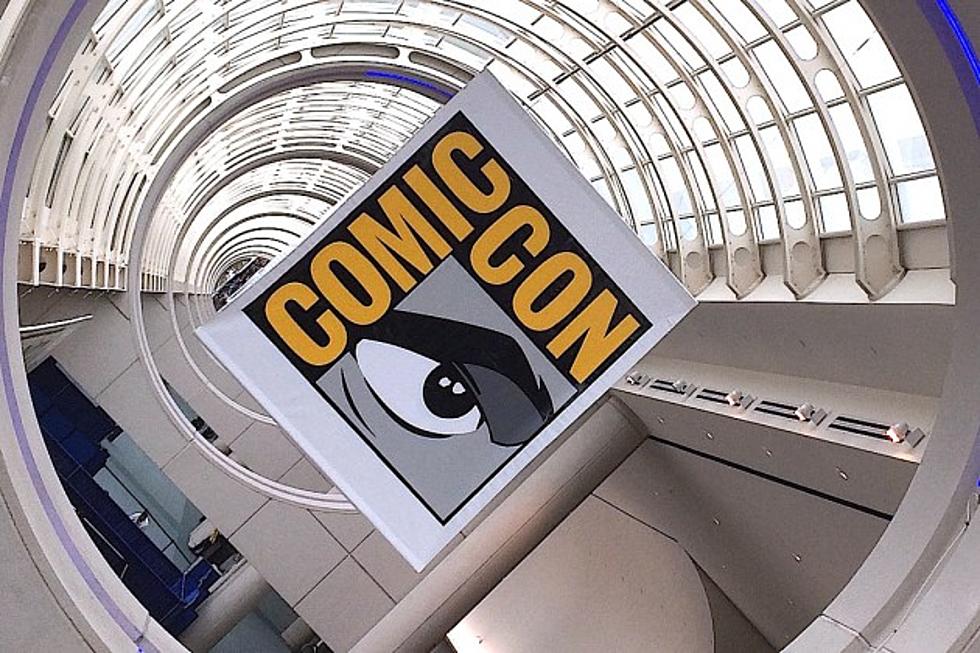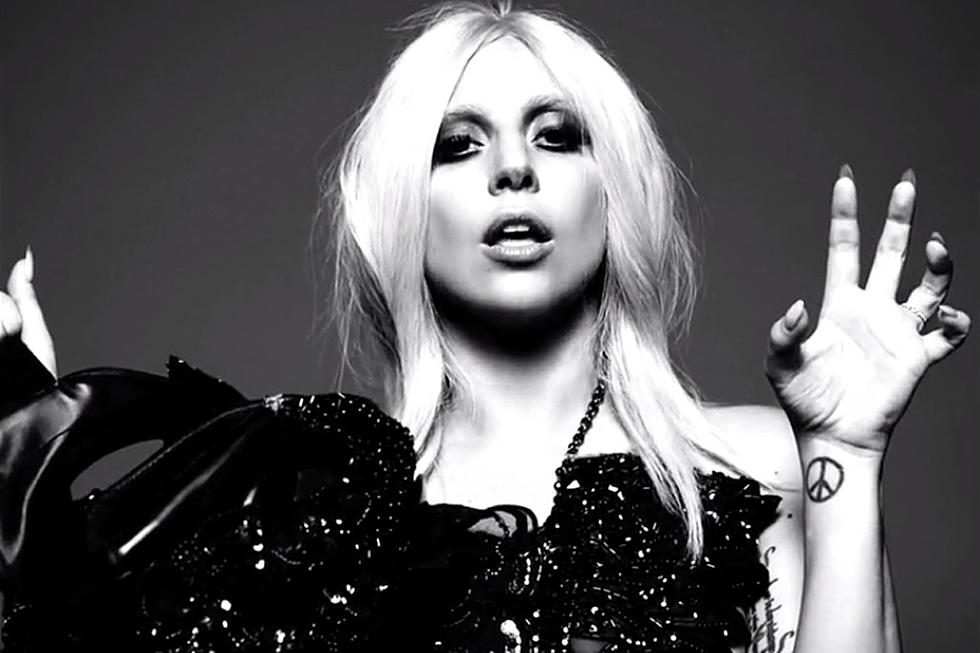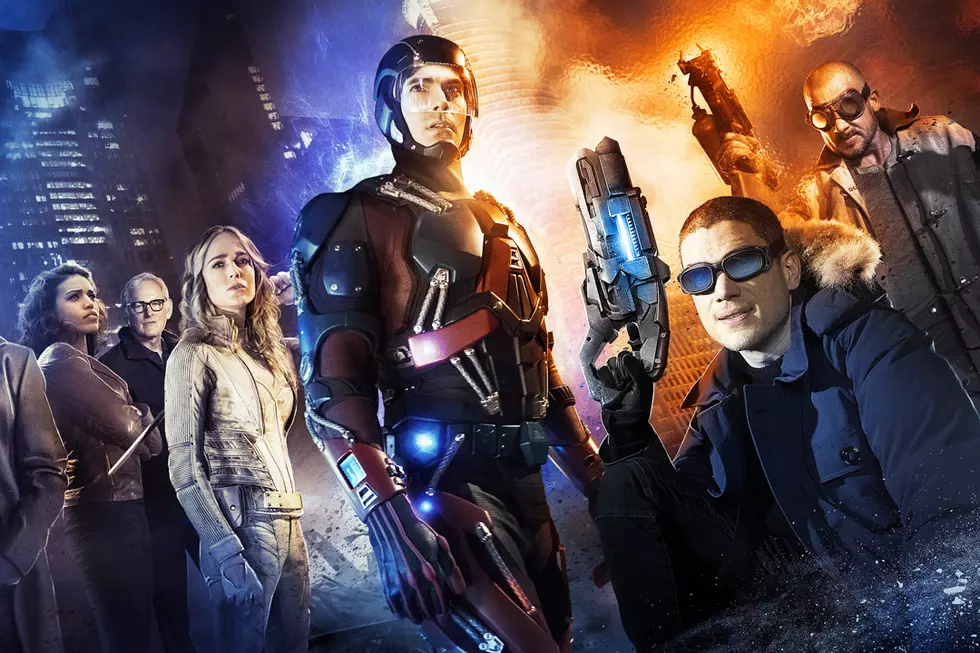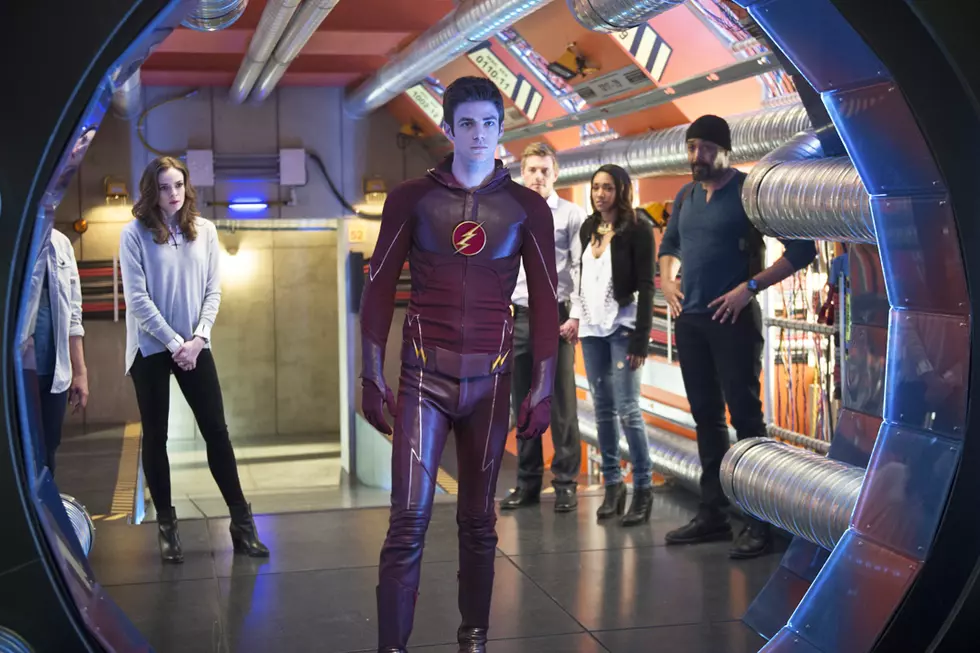
Comic-Con and the Eventification of Hollywood
San Diego Comic-Con. Hall H. Land of excitement, exclusives — and absurdly long lines. All weekend, thousands of geeks waited to get into one of Comic-Con’s famous Hall H panels. By Thursday, the line stretched almost a mile and a half across the waterfront. Meanwhile, tucked into an obscure corner of the San Diego Convention Center with no line whatsoever, a panel took place that explained exactly why all those fans were waiting in the first place.
The panel was called “Studio Production Chiefs Speak,” and it featured three creative executives from three Hollywood studios — Daria Cercek from Fox, Drew Crevello from Warner Bros., and Jim Miller from Lionsgate — sharing insights into the state of the modern American film industry. Topics included how far ahead the studios are now planning their big tentpole releases (at least five years, in the case of Warner Bros. and their rapidly expanding DC Cinematic Universe), the challenges of big-budget filmmaking (“the essential decision” is finding the right director, said Cercek), and the importance of loyalty to source material in adapting beloved comics and novels (according to Miller, it’s “the most important thing” in any major adaptation).
Just before opening the floor to audience questions, moderator Ben Fritz of the Wall Street Journal asked the panelists about how cognizant they are of their competitors in television and on the internet. Do they have to keep in mind what makes a film different? Cercek replied with the following quote (emphasis mine):
That is the conversation you have on every movie. It’s what makes this — we say “an event” — but what makes this something that’s gonna be compelling enough for people to leave their homes and buy a ticket and go to the movie theater.And that could be one thing — it could be the director, it could be the cast — or sometimes it has to be a combination of things, or a concept. So that’s 100% the conversation, and I think even on our franchises and our IP and our titles, there’s always this conversation about ‘Hollywood just makes sequels and it doesn’t make original material,’ but even within the IP and franchises, the conversation is always ‘How do we find an original, fresh approach?’ We look to our filmmakers to provide that new way in, or to tell the story from a different character’s perspective, or whatever it might be that makes it feel different and original.
If you’re looking for proof that Hollywood has essentially abandoned “adult storytelling” to television, look no further than those words. That’s simply not what mainstream movies are about anymore. They’re about events. And events are not defined by their quality; they‘re defined by their importance. Good or bad is ultimately irrelevant. Terrible but significant is vastly preferable to fantastic but trivial.
The term “event film” has been around for decades; Wikipedia claims Steven Spielberg’s Jaws was the first movie “whose release itself [was] considered a major event.” Event films, it continues, usually possess the “highest-grossing box-office in the particular year [and become] a part of popular culture.” Jaws, though, wasn’t designed to be an event; it became an event in retrospect due to its massive success and its impact on pop culture. Today Hollywood explicitly chooses properties and franchises with their event-ness in mind. That’s what drags people off their couches and away from their cell phones into the theater. The mantra of modern movies is not “go big or go home.” It’s “go big or stay home.”
Perhaps this is just obvious, common sense stuff. Anyone paying attention to each weekend’s new releases knows that Hollywood keeps doubling down on bigness as their primary selling point, particularly during the summer. But this Comic-Con panel wasn’t about an outside observer commenting on the enormity of these lumbering blockbusters; It featured a trio of insiders who help decide what films make it to theaters, all confirming that “events” are the studios’ number one priority.
With that in mind, it’s illuminating to look at the list of the year’s biggest grossers and consider them as events rather than entertainments. Jurassic World might have been a dumb movie, but it was a spectacular event; the first Jurassic Park sequel in 15 years, and the first to directly continue the events of the original film, with a dinosaur theme park that falls to pieces. Every Avengers film is, by definition, an event; Age of Ultron united the separate storylines of at least half a dozen characters, introduced new Avengers, paid off years of previous movies, and set up years of future movies. It was the cornerstone of at least a decade of film. And cynical as it may be to say, Paul Walker’s tragic death might have made Furious 7 into an even bigger event than it already would have been. It turned yet another Fast sequel into a grand farewell for a beloved actor.
That’s what marketing sells these days; the event. Rather than make another Superman movie after the tepidly received Man of Steel, Warner Bros. upped the ante (and the uniqueness of the sequel) with Batman v Superman. People have seen Superman onscreen a half-dozen times already, but they’ve never seen him fight Batman before. That’s an event. The poster for the new Mission: Impossible — Rogue Nation shows Tom Cruise hanging off an airplane — a death-defying stunt so spectacular, it has to be seen to be believed. That one completely bats--- crazy image (which Cruise performed himself several times) is practically the entire publicity campaign. There are whole online featurettes devoted to this act of sheer stupidity (and awesomeness):
I say all of this not to decry the cynical decisions behind tentpole movies, but to observe that those cynical decisions might be the correct ones. All of 2015’s biggest hits are events. All of 2015’s biggest flops are not. Where is the event, for example, in Brad Bird’s Tomorrowland? It’s not the first Disney film based on a theme park ride (that would be the TV movie Tower of Terror), or Bird’s first live-action production (that was Mission: Impossible: Ghost Protocol — which also had the draw of spectacular IMAX sequences, and was a major hit). Magic Mike XXL also underperformed (pun most certainly intended), possibly because it didn’t seem distinct enough from the first film (and therefore less of an event). Or what about Terminator Genisys? Sure, putting Arnold Schwarzenegger back in his most famous role is notable, but doing it just to rehash and revise scenes from the first two movies? Not particularly eventful.
Comic-Con was the perfect place for this conversation, because the convention has become the ultimate symbol of this new Hollywood model; where the selling of event films becomes an event unto itself. No one sleeps outside for three days to hear a funny story from Guillermo del Toro; they do it to be a part of a unique pop-culture happening. The Star Wars: The Force Awakens footage from Comic-Con might have gone online minutes after its panel ended, but the one-of-a-kind concert held just for the 6500 attendees at a nearby symphony space, complete with mass lightsaber choreography and an insane fireworks finale, couldn’t possibly be duplicated at home. The whole production must have cost Disney and Lucasfilm a small fortune, more than many indie filmmakers spend on entire movies, all to create the feeling that The Force Awakens is more than a movie; it’s a once-in-a-lifetime event.
That’s why Comic-Con will probably never stream their programming online, despite endless calls from some fans (including many at the con itself). If Hall H goes online, it’s not an event. And that’s why Hollywood tries to find the event in every big movie it puts into production. There are thousands, if not millions of things you could watch at any moment at home. If the latest studio release isn’t special, why go? You wouldn’t. I don’t necessarily like it, but I understand it.
But there’s a potential problem with the eventification of Hollywood. Something can only be singular once; once repeated, it loses its luster — and Hollywood’s other primary strategy is to repeat established brands over and over. They’re working on the second Spider-Man reboot in three years, and new interpretations of old favorites like Ghostbusters, The Jungle Book, Power Rangers, and Friday the 13th are all due in theaters in the next year or two. All of these films will be presented as landmarks in the history of cinema. But what’s to differentiate one particular production as momentous and exceptional if every single blockbuster is sold as momentous and exceptional — and every single one is a rehash of what’s come before? If everything is an event, then nothing is an event. When audiences figure that out, they may draw a line in the sand about these event movies — or, even worse, they may stop waiting in line to watch them.
More From ScreenCrush









